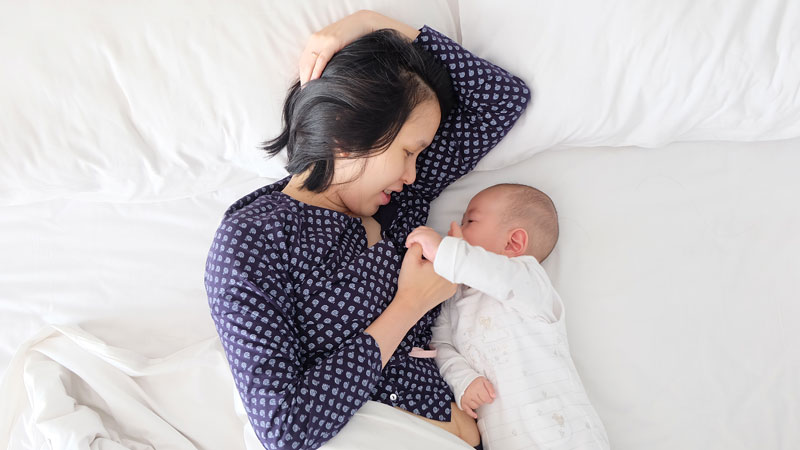Postpartum (or Postnatal) depression is a serious mental condition that affects between 20% and 35% of women after giving birth.
The symptoms usually happen in the first 3 months following delivery but may occur up to the first 18 months.
Some signs and symptoms of postpartum depression:
- Tearfulness;
- Feelings of deep sadness;
- Irritability;
- Lack of energy and lack of interest in performing tasks;
- Lack of interest in your own baby;
- Deep feelings of guilt;
- Changes in sleep pattern;
- Reduced appetite;
- Low self-esteem.
- Suicidal feelings
- Negative or harmful thoughts towards your child
This is often treated as a medical emergency as leaving this condition untreated can cause harm to both mother and child.
It is essential to seek help from midwife, health visitor or GP if you feel as thought you are not coping or are suffering from any of the symptoms above.
GPs are trained to ask questions to detect depression after birth and rapid assessment can lead to treatment by way of talking therapies, additional social and psychological support or medication.
This is not a pathology exclusive to women – about 4% of men also suffer from postpartum depression.
Baby Blues
Postnatal depression is different to the so-called ‘baby blues’, which is a far milder symptom affecting about 80% of women, appearing in the first days after childbirth and lasting no more than 2 weeks.
The signs include:
- Fatigue
- Irritable, restlessness
- Emotional
- Worry about whether you are doing everything correctly
Many of these are related to lack of sleep, physical and emotional exhaustion in the post-natal period.
Hormonal changes are largely responsible for mood swings – mainly a drop in oestrogen and progesterone, but not just these alone.
There are numerous factors, whether psychological, family or even socioeconomic, that can weigh on this stage of life.
If a woman has anxiety or any other psychiatric disorder in her clinical past, she will need special attention both during pregnancy and postpartum.
Some preventive tips:
- Don’t try to be a perfectionist – what works for one baby may not work for another, just try to find a routine that suits you and your little one.
- Control the attention you give to criticism or judgment coming from those around you.
- Take a rest! Sleeping well will help you to better deal with all the daily challenges.
- Ask for help – this is a good opportunity to seek the assistance of extended family and friends, especially those with experience of newborns.
- Delegate roles and share your feelings with those around you and healthcare professionals.
At Oval Medical Centre we have a medical team ready to listen and act. Seek help! Allow yourself to fully enjoy motherhood.

